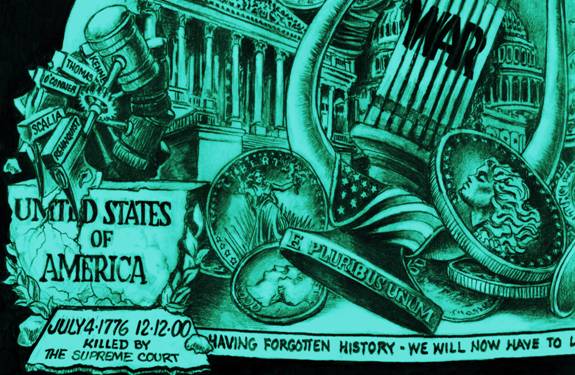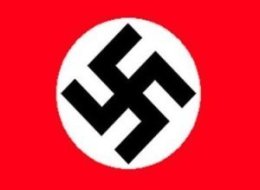 When Hajji Juma Khan was arrested and transported to New York to face charges under a new American narco-terrorism law in 2008, federal prosecutors described him as perhaps the biggest and most dangerous drug lord in Afghanistan, a shadowy figure who had helped keep the Taliban in business with a steady stream of money and weapons.
When Hajji Juma Khan was arrested and transported to New York to face charges under a new American narco-terrorism law in 2008, federal prosecutors described him as perhaps the biggest and most dangerous drug lord in Afghanistan, a shadowy figure who had helped keep the Taliban in business with a steady stream of money and weapons.
But what the government did not say was that Mr. Juma Khan was also a longtime American informer, who provided information about the Taliban, Afghan corruption and other drug traffickers.





 A remarkable study published in the Cochrane Libary found no evidence of benefit for influenza vaccinations and also noted that the vast majority of trials were inadequate.
A remarkable study published in the Cochrane Libary found no evidence of benefit for influenza vaccinations and also noted that the vast majority of trials were inadequate. Did you actually think that this country is 'yours'? Do you understand that the Congress that supposedly represents you only works three days a week? And we won't even begin to discuss all the vacations and junkets they take when they could do it all from behind a computer. Do you know that the clients they represent are in reality the world's largest corporations and that they don't give a damn about you and never have? You and I are less than Road-Kill to these Robber-Barons, and that has been true at least since November 22, 1963. For those who might not remember that day ­ it was the day that JFK was murdered. When he died, the hopes and dreams of millions around the world died with him.
Did you actually think that this country is 'yours'? Do you understand that the Congress that supposedly represents you only works three days a week? And we won't even begin to discuss all the vacations and junkets they take when they could do it all from behind a computer. Do you know that the clients they represent are in reality the world's largest corporations and that they don't give a damn about you and never have? You and I are less than Road-Kill to these Robber-Barons, and that has been true at least since November 22, 1963. For those who might not remember that day ¬≠ it was the day that JFK was murdered. When he died, the hopes and dreams of millions around the world died with him. Now remember and read closely‚Ķ this article was written PRIOR to Wikileaks‚Äô first big ‚Äúleak‚ÄĚ, which according to the article was to¬† occur sometime in March of 2007.
Now remember and read closely‚Ķ this article was written PRIOR to Wikileaks‚Äô first big ‚Äúleak‚ÄĚ, which according to the article was to¬† occur sometime in March of 2007. On the third Wednesday of every month, the nine members of an elite Wall Street society gather in Midtown Manhattan. The men share a common goal: to protect the interests of big banks in the vast market for derivatives, one of the most profitable ‚ÄĒ and controversial ‚ÄĒ fields in finance. They also share a common secret: The details of their meetings, even their identities, have been strictly confidential.
On the third Wednesday of every month, the nine members of an elite Wall Street society gather in Midtown Manhattan. The men share a common goal: to protect the interests of big banks in the vast market for derivatives, one of the most profitable ‚ÄĒ and controversial ‚ÄĒ fields in finance. They also share a common secret: The details of their meetings, even their identities, have been strictly confidential. Since releasing a vast cache of diplomatic cables this month, the anti-secrecy group WikiLeaks has been the focus of intense criticism: for divulging classified materials, embarrassing the U.S. government and potentially endangering lives. But it has also engendered the frenzied support of an expanding and loosely defined global collective that seems intent on speaking out - and in some cases waging war on WikiLeaks' behalf.
Since releasing a vast cache of diplomatic cables this month, the anti-secrecy group WikiLeaks has been the focus of intense criticism: for divulging classified materials, embarrassing the U.S. government and potentially endangering lives. But it has also engendered the frenzied support of an expanding and loosely defined global collective that seems intent on speaking out - and in some cases waging war on WikiLeaks' behalf. At first glance, Sonja Kohn, a short, stout, red wig-wearing 62-year-old grandmother and banker from Vienna, Austria hardly appears to be one of the greatest financial crooks ever, let alone the repeated recipient of a ‚Äúbig hug and a kiss‚ÄĚ from her ‚Äúcriminal soul mate,‚ÄĚ Bernie Madoff. Kohn, according to bankruptcy trustee Irving Picard, may be even worse than the now-jailed Madoff. He claims she and her family continue to steal with impunity and hide millions of dollars taken from Madoff victims, in spite of the ongoing U.S. criminal investigation.
At first glance, Sonja Kohn, a short, stout, red wig-wearing 62-year-old grandmother and banker from Vienna, Austria hardly appears to be one of the greatest financial crooks ever, let alone the repeated recipient of a ‚Äúbig hug and a kiss‚ÄĚ from her ‚Äúcriminal soul mate,‚ÄĚ Bernie Madoff. Kohn, according to bankruptcy trustee Irving Picard, may be even worse than the now-jailed Madoff. He claims she and her family continue to steal with impunity and hide millions of dollars taken from Madoff victims, in spite of the ongoing U.S. criminal investigation. Declassified CIA files reveal that US intelligence officials went to great lengths to protect a Ukrainian fascist leader and suspected Nazi collaborator from prosecution after World War II and set him up in a New York office to wage covert war against the Soviet Union, according to a new report to Congress.
Declassified CIA files reveal that US intelligence officials went to great lengths to protect a Ukrainian fascist leader and suspected Nazi collaborator from prosecution after World War II and set him up in a New York office to wage covert war against the Soviet Union, according to a new report to Congress.






























